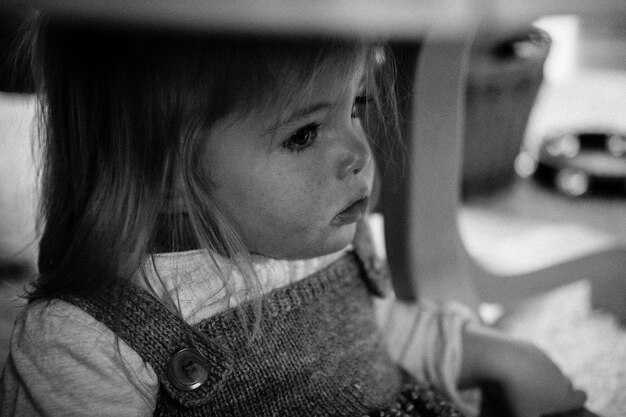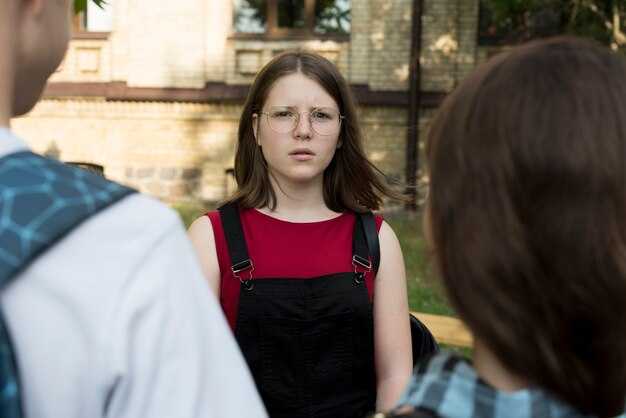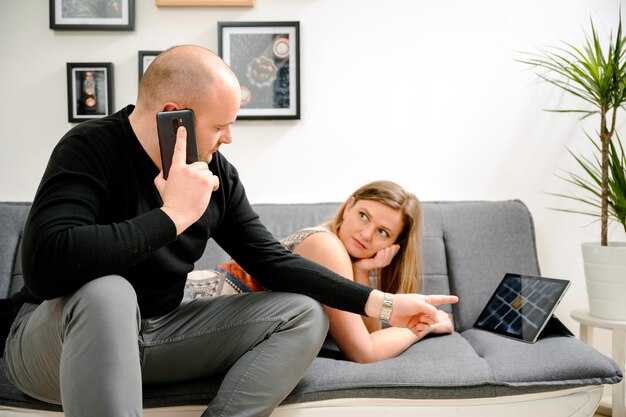No one fully grasps experiences like this unless they’ve lived through them. When you grow up neglected and abandoned, with your needs ignored, there’s a strong tendency to become attached to partners who cannot give the steady, nurturing love you crave. You hold on to them even after they reveal themselves to be unstable or emotionally harmful. They aren’t willing or able to change, and having them in the home is unsafe for you and your children. This is the dangerous moment when trauma can leap from one generation to the next: when you bind yourself to someone who is deeply wounded and unlikely to heal, you risk passing that damage on. You might cling to the hope that something good is beginning, even though that person will likely bring grief into your life.
I’m not a clinician; I’m someone who has recovered from damaging relationship patterns, and I’m speaking from that experience to help you. Magical thinking can convince you that the intense suffering you endure because of how a romantic partner treats you is proof that they’re “the one.” They’re not. Consider this a clear warning.
Today’s letter comes from a woman I’ll call Kristen. She writes: “Dear Anna — I’m in my mid-thirties and a single parent to a wonderful child.” Okay, I’ll mark things I want to revisit on a second read, but for now let’s track what’s happening in Kristen’s life.
She’s in her mid-thirties, raising a child alone. Her childhood was hard: her mother battled anxiety, depression, and chronic overwork, while her father was emotionally unavailable. Because both parents worked long hours, she and her siblings were often left with their grandmother, who was harsh and emotionally abusive. She watched her younger siblings, especially her brother, suffer mistreatment that left long-lasting wounds. When she thinks of those days, she feels trapped at her grandmother’s house and remembers wishing her parents would come home and rescue her.
Her parents’ relationship was unstable, with frequent fights and constant threats of separation. Her mother confided adult worries to Kristen because she was the eldest, dumping burdens on someone far too young to carry them. Kristen was bullied relentlessly in early school years and felt isolated, though later she did make friends. She has struggled with emotional eating, bingeing, and repetitive anxious thoughts. Her romantic life has been turbulent.
She met her child’s father in her late twenties and became pregnant; the relationship quickly turned toxic. After enduring verbal, emotional, and physical abuse, she left. The aftermath involved years of legal conflict and harassment. EMDR therapy helped her process much of that trauma, and she says she’s reached a place where she can co-parent for the child’s sake. Now she largely feels indifferent toward him. As an adult, she’s worked hard to build a steady life: she holds a master’s degree, she has a creative career, and she’s created a safe home for her child. Still, she often feels like she’s barely keeping everything together and that the weight of past and present pain is inescapable. She’s reached a point where she feels compelled to confront herself and the inner wounds she’s carried.
One of Kristen’s biggest recent struggles was a relationship that followed her exit from the child’s father. She fell in love with a man who seemed to notice and understand her in a way she’d never known. He was sensitive, passionate, and intensely creative. From the beginning there were complications: he wasn’t yet divorced (he is now), they held different views on children, and he at first talked about polyamory before later deciding to try monogamy with her. Despite these issues, Kristen believed he was her soulmate, the sort of love she never thought she would find.
A few months into their relationship he disclosed a diagnosis: bipolar I with psychotic episodes that had started after discovering his ex-wife’s infidelity and the collapse of his marriage. At the time, Kristen didn’t fully understand the severity of his condition; she wanted to support him, thinking he was as traumatized as she had been. Their connection alternated between intense closeness and severe conflict. He often blamed their fights on her anxiety and accused her of emotional manipulation, which devastated her—especially because she tried to be honest about her feelings. She acknowledges her anxiety and insecurity in relationships; she’s aware of these tendencies and tries to manage them.
The relationship reached a breaking point after an argument about him sleeping with other women during a brief separation. He framed the behavior as not being betrayal, but it wounded her deeply. They agreed to attend couples therapy and to try again. During a session he mentioned his encounters with other women so casually that she completely spiraled. Her outward reaction, though intense, was an expression of deep pain and an attempt to establish a boundary. Following that fight, he broke up with her and later had a psychotic episode that resulted in hospitalization; he blamed her for triggering it and accused her of abusing him. Those accusations left Kristen overwhelmed with guilt, shame, and confusion. He attempted several reconciliations after he was well again; she refused at first because she feared triggering another episode. When she was finally ready to discuss their relationship and a path forward, he reversed course once more, saying he had to protect his mental health because she had not apologized for causing his hospitalization. He blamed and abandoned her again. She felt utterly bewildered.
She wonders whether her trauma responses and emotional reactions pushed him over the edge, whether she caused his illness. He would say she seemed sweet and calm at times, “like a lovely fairy,” but at other times transformed into someone he labeled “abusive.” She insists she never screamed, cursed, or shouted in the way he described, though she admits struggling with anger about his betrayal and not always expressing her hurt constructively. Perhaps she has used passive-aggressive tactics to show that anger. She doesn’t know how to reconcile his depiction of her with her own intentions, which were never to harm but to convey hurt. She wishes he had simply comforted her and reassured her that things would be all right. Now she’s lost: heartbroken over the breakup, obsessing over what she could have done differently, terrified she has sabotaged her chance at love and family because of lifelong wounds. Yet part of her feels that her pain and the boundaries she tried to set were legitimate. She’s stuck in a painful mix of guilt, shame, longing, and the desire to heal and move forward. The result is utter hopelessness about the future, about love, family, and stability—things she wants and needs desperately but fears are unattainable, as if they belong to people who “got the memo” about life earlier than she did. She feels emotionally spent, depleted of resilience, barely functioning, hanging on only for her child. She tries to hide her pain from her child but finds it increasingly hard. She pleads for help: how can she turn her life around? She’s ready to do whatever it takes and begs for advice—honest counsel, tough love, or encouragement.
Kristen, I’ll give you encouragement mixed with some firm truths. You need to see a professional, because there’s something you haven’t fully grasped: you’re involved with someone whose psychiatric diagnosis can be dangerous to others, and you have a child. Right now your mental and emotional state is muddled, and that confusion you described—being “completely bewildered”—isn’t as inexplicable as it feels. Often people use “confusion” as a way of softening denial: I’m bewildered because part of me thinks this is the love of my life and I feel guilty and responsible for what happened. That guilt and the fantasy that this is your one true love are the very reasons some people keep returning to relationships that are harmful. If you truly want a stable, secure partnership, you must set a firm boundary with someone who repeatedly misled you about a serious diagnosis, flirted with polyamory then backed away, and has repeatedly abandoned and blamed you. Everything you describe—how miserable you feel around him, how impossible it is to solve problems together, how dreadful that counseling session felt—adds up to a relationship that undermines you, divides you from yourself, and drags you toward ruin. Put plainly: this is very serious. You have a child, and your sadness and depression are visible. That makes seeking professional help urgent.
You did a brave thing by ending a relationship that became toxic. The next step after stabilizing this crisis is working on yourself so you can understand why you are drawn to partners with such severe issues and why you become so entangled that you end up blaming yourself. Your childhood history explains a lot: neglect, an emotionally abusive caregiver, feeling trapped and yearning for rescue. It’s unsurprising that someone who endured that would get stuck in a “save me” stance—desperate for love and rescue. You used the word “desperate” repeatedly; your yearning for happiness is legitimate, and if your life is so painful it’s driven by desperation, that tells you something important: it’s time to find sustainable happiness.
You already have evidence about what this relationship gives you—and it’s not happiness. A healthy relationship is visible by how well it functions: you’re content, aligned on major issues, and you don’t face constant secretive or destabilizing problems like a hidden major mental illness, elusiveness about monogamy, or flippancy about your feelings. Many people have diagnoses and work through them while in loving, stable relationships, but this man has repeatedly treated you poorly, been inconsiderate in counseling, and acted coldly and dismissively—even when the situation demanded care. He is not the one for you, and you aren’t responsible for his illness or for curing him. You could not have fixed him even if you’d tried.
Those of us who were neglected as children often end up with partners who are profoundly difficult to be with, and we think if we just mute our needs and adjust, everything will be fine. That’s a trap. This relationship is a fresh trauma, reactivating old wounds. Healing requires peace—honest, safe relationships and a life that supports recovery. Peace is both the fruit of healing and a condition for it.
A crucial practical step: stay single for a while. Particularly when you’re parenting, you must raise the bar extremely high for anyone who comes into your child’s life. Statistically, children are at the greatest risk from a stepparent, so you cannot afford to bring someone in who might mistreat or upset your child. That doesn’t mean you’ll never find a partner; it means you must proceed slowly and deliberately. Be crystal clear about what you need and don’t negotiate large values like fidelity or fundamental respect. Don’t rewrite your desires to match whatever is in front of you—resist the temptation to lower standards to fit an available person. Let your standards protect both your child and you.
From my own experience: I remarried when my children were teens, but I dated very slowly, and it still took years to reach a good place. My earlier rushing into relationships after divorce had brought me painful lessons. It’s vital to delay intimacy and the usual relationship accelerants. When you have attachment wounds from childhood, impulsive sexual connection can trigger immediate bonding that’s hard to step back from. One sexual encounter can activate desperate attachment and lead you to override clear information about a person’s unsuitability. That internal trauma voice will tell you to lower your standards, blame yourself, and keep trying to fix the impossible. You must learn to override that voice, often with real social support.
Surround yourself with others who are healing, people who will keep you grounded and honest. Peer support—through therapy groups, 12-step programs for relationship or sex and love addictions, Al-Anon, Adult Children of Alcoholics (ACA), or similar communities—can provide accountability and a reality check when you’re tempted to idolize or minimize a partner’s harmful behavior. When we try to hide the ugliness of a relationship from others, it’s easy to slip into magical thinking and selectively remember only the lovely moments. Regular contact with grounded people helps counter that.
You need clear boundaries and ways to enjoy life without rushing into a new romantic attachment. Healing takes time. Some people advise never marrying until your kids are grown; that sounds extreme, but it underscores the need to be cautious. If you do enter a new partnership, take it very slowly: long periods of time getting to know someone, delaying sexual intimacy, and observing how they treat you and your child. Look for patience, reliability, and consistent kindness. Set very high standards—because what’s best for your child is also best for you.
You asked how to proceed when you feel the urge to call him or rush into another relationship with someone who seems exciting. Make a plan and keep reminders handy: a list of red flags to consult when you feel pulled back into contact. If you’re tempted to reconnect with someone who has already harmed you or failed to be transparent about major issues, use that list to pause and reassess. You can create or download such a list of warning signs—things like frequent cancellations, disregard for your feelings, secrecy about serious diagnoses, flippancy about boundaries, inconsistent caregiving—so you have a tangible tool to break the cycle.
You deserve to recover and to build a life of genuine joy. Seek professional help soon to support your mental health and parenting capacity. Join supportive groups and cultivate friendships with people who are also working on healing. Hold and enforce firm boundaries with people who have repeatedly harmed you. Let yourself rest and rebuild a peaceful, steady life before re-entering a serious romantic relationship. With time, clarity, and high standards, you can find stable love and protect your child from further hurt.
Finally, for practical assistance, there’s a downloadable checklist of red flags you can carry in your purse for moments of temptation—when you feel like calling him or rushing into someone new. It’s free; click to get it, and take the next steps toward healing. I’ll see you soon.


 Childhood Neglect & The Urge to Abandon Yourself Around Bad People">
Childhood Neglect & The Urge to Abandon Yourself Around Bad People">

 Why Your Ex Will Never Replace You (And Here’s Proof) | Avoidant attachment style">
Why Your Ex Will Never Replace You (And Here’s Proof) | Avoidant attachment style">
 5 Shocking Reasons You Shut Down Emotionally (That No One Told You)">
5 Shocking Reasons You Shut Down Emotionally (That No One Told You)">
 Validating Pain in the Past">
Validating Pain in the Past">
 When the Avoidant Comes Back: Decoding Their 4 Texts (And How to Respond to Reclaim Your Power)">
When the Avoidant Comes Back: Decoding Their 4 Texts (And How to Respond to Reclaim Your Power)">
 Their Actions Have Consequences.">
Their Actions Have Consequences.">
 O que acontece quando você negligencia um pessoa agradável? || Perseguidor Exausto">
O que acontece quando você negligencia um pessoa agradável? || Perseguidor Exausto">
 Pare o Dano Causado por Estes Pais Agora (Compilação em 4 Vídeos)">
Pare o Dano Causado por Estes Pais Agora (Compilação em 4 Vídeos)">
 Algumas Pessoas Têm ESTA Vantagem Enorme (#4 Na Minha Série "Agindo com Modéstia")">
Algumas Pessoas Têm ESTA Vantagem Enorme (#4 Na Minha Série "Agindo com Modéstia")">
 O casamento pode ser MUITO solitário.">
O casamento pode ser MUITO solitário.">
 O Que um Evitativo REALMENTE Pensa Durante o Contato Zero">
O Que um Evitativo REALMENTE Pensa Durante o Contato Zero">